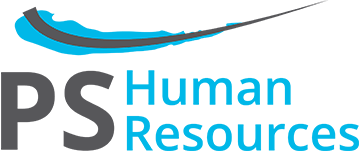Over the weekend, a friend shared a Facebook post that read: ‘A year ago this was our last normal week, and nobody knew it’. One of the questions I keep hearing and asking, is: ‘Where has the last year gone?’. I have found it hard to keep track of time when, without any holidays or events to look back on, I don’t have anything to measure it against. I suspect we are all trying to find our ‘new normal’ and there is nothing like an annual happening to remind us that life is still going on, as it always has. Birthdays are the obvious example here, whether we like it or not!
This year many young people will be conscious of how changes to the 2021 National Minimum Wage will affect them as they reach the age of minimum wage entitlement, or see a pay increase according to their age band. This is big news for employers too as the responsibility lies with them to ensure the correct rates are paid and any changes are tracked to ensure compliance.
In March 2020, I was working through a pay review project, based on the impending National Minimum Wage increase, and hoping that I had done enough to cover off a further expected increase later that year, of which there had been rumblings. Well, that did not happen, and increases payable from April 2021 are lower than in recent years, both for very obvious reasons.
However, there is some good news for young people in that, for the first time, entitlement to the National Living Wage will apply to those aged 23 or above (instead of 25 or over). This will result in a substantial pay rise for 23 and 24-year-olds receiving the current minimum wage rate and so may impact significantly on the payroll.
Changes to NLW rates and Age Bands, effective from 1st April are:
Aged 23 and above (NLW) £8.91
Aged 21 to 22 inclusive £8.36
Aged 18 to 20 inclusive £6.56
Aged under 18 (but above compulsory school leaving age) £4.62
Apprentices aged under 19 £4.30
Apprentices aged 19 and over, but still in the first year of apprenticeship £4.30
This year’s government changes will also see Statutory Sick Pay rise to £96.35 weekly from 6th April with no adjustments to the qualifying threshold of average weekly earnings.
There is also a small increase to the ‘family friendly’ payments from 4th April, rising to £151.97 per week. The rate applicable for calculating average earnings for the first six weeks of maternity or adoption pay remains at 90%. After that, and for all other family-friendly payments, the 90% average or statutory payment, whichever is lower, remains in place.
Whilst the uplifts are not huge this year, these payments are a lifeline to working people, whether due to illness or happier times, such as becoming a parent. The personal impact on finances resulting from the pandemic is yet to be felt, but we must hope that it will not be to the detriment of our statutory entitlements in the future.
The best way to keep on track with employee entitlements is to review ‘Family Friendly’ policies annually, ideally in the first week or so of April. For guidance on these changes or other HR services we offer, speak to a member of our team on 01473 653000. You can also support your business effortlessly and manage staff admin in one place with our low-cost software BreatheHR. Book a short demo to see how it easily it works.





